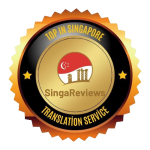
Automotive and Manufacturing Documentation: Technical Japanese Translation Services for Hong Kong’s Industrial Sector
Hong Kong’s industrial sector continues to strengthen its partnerships with Japanese technology firms, creating growing demand for accurate technical translation services. Manufacturing companies and automotive businesses working with Japanese partners need precise documentation translation to ensure smooth operations, safety compliance, and quality standards. This guide explores how professional Japanese translation services support Hong Kong’s industrial growth.
Hong Kong’s Growing Industrial Partnerships with Japan
Hong Kong serves as a vital business hub for Japanese companies expanding throughout Asia. Currently, approximately 1,400 Japanese firms maintain regional headquarters or offices in Hong Kong. These companies leverage Hong Kong’s strategic location, well-developed logistics networks, and world-class business services to manage operations across the Asia-Pacific region.
The industrial sector forms a significant part of this relationship. Japanese manufacturing companies, automotive firms, and technology providers use Hong Kong as their gateway to mainland China and Southeast Asian markets. This partnership creates a constant need for accurate translation of technical documents, safety manuals, and manufacturing specifications.
Hong Kong’s position within the Regional Comprehensive Economic Partnership (RCEP) framework further strengthens these business ties. Survey data shows that 90% of Japanese companies based in Hong Kong manage business in at least one RCEP market, with 60% planning to expand their operations. Read the detailed news here.
Why Japanese Technology Powers Hong Kong Manufacturing
Japanese companies have built strong reputations in automotive engineering, precision manufacturing, and industrial technology. Major brands like Toyota, Honda, Nissan, Mitsubishi, and Mazda produced approximately 9.9 million automobiles in 2012 and remain for more innovations until now. These manufacturers maintain high standards for safety features, fuel economy, and performance levels.
Japanese automotive engineers and manufacturers need to communicate effectively with Hong Kong-based partners, suppliers, and distributors. This communication extends beyond simple business discussions to include complex technical specifications, quality control procedures, and manufacturing standards.
The technology transfer from Japanese companies to Hong Kong operations requires careful documentation. Japanese firms traditionally provide comprehensive training covering operational technology, maintenance procedures, repair protocols, and quality control systems. All these training materials and operational documents need accurate translation to ensure proper implementation.
The Critical Role of Technical Documentation Translation
Technical translation services form the foundation of successful Japanese-Hong Kong industrial partnerships. Manufacturing and automotive documentation contains specialised terminology that requires deep industry understanding. A single mistranslation in safety guidelines, machinery specifications, or assembly instructions can lead to serious consequences.
Japanese translation services in Hong Kong must address several critical documentation needs. Companies require translations that maintain technical accuracy whilst ensuring compliance with local regulations and international standards. Professional translators need both linguistic skills and technical expertise to handle complex engineering concepts.
The accuracy of technical documentation directly impacts worker safety, product quality, and operational efficiency. Mistranslated equipment specifications can result in improper assembly or equipment malfunction. Incorrect safety instructions may endanger workers. These risks make professional technical Japanese translation services essential rather than optional.
Essential Automotive and Manufacturing Documents Requiring Translation
Industrial translation covers numerous document types across the manufacturing lifecycle. Understanding these categories helps businesses plan their translation needs effectively.
- Product Development and Design Documentation includes engineering specifications, technical drawings, CAD notes, product data sheets, and research reports. These documents contain precise measurements, material specifications, and design parameters that must translate accurately.
- Manufacturing and Quality Control Materials encompass standard operating procedures, quality control protocols, manufacturing safety data sheets, process management documents, and internal training materials. These documents guide daily operations and ensure consistent quality standards.
- Automotive-Specific Documentation covers vehicle manuals, technical specifications, engineering drawings, testing and validation reports, warranty documents, and repair manuals. Automotive translations must comply with safety regulations and certification requirements across different markets.
- Post-Sales and Support Documentation includes user manuals, installation guides, maintenance schedules, troubleshooting procedures, and customer service materials. Clear translation of these documents ensures proper product use and customer satisfaction.
Understanding Japanese Technical Translation Challenges
Translating technical content from Japanese to English or Chinese presents unique challenges that general translators cannot adequately address. Japanese language services for industry require specialised expertise.
- Linguistic Complexity forms the first major challenge. Japanese uses three writing systems; kanji, hiragana, and katakana; each serving different purposes. Technical documents often mix these systems with English terminology and numerical data. The language structure differs fundamentally from English, with subject-object-verb order versus English’s subject-verb-object pattern.
- Technical Terminology presents another significant challenge. Japanese industrial terms often lack direct English equivalents. New manufacturing technologies constantly generate new terminology. Translators must understand both the technical concepts and the appropriate terminology in target languages.
- Cultural and Contextual Dependencies complicate translation further. Japanese communication relies heavily on context and implied meaning rather than explicit statements. This ambiguity requires translators to grasp intended messages from the surrounding context. Technical documents may reference Japanese Industrial Standards (JIS) that need correlation with international ISO standards.
- Formatting and Layout Considerations affect technical document translation. Japanese text behaves differently from English in digital layouts, often contracting where English expands. Mixed Japanese-English text creates spacing and alignment challenges. Technical drawings and diagrams require careful handling to maintain accuracy whilst adapting text.
Quality Standards for Technical Documentation Translation
Professional technical documentation translation follows rigorous quality standards to ensure accuracy and reliability. International standards and industry best practices guide these processes.
- Quality Assurance Processes typically include multiple verification stages. Professional translation services employ subject matter experts who understand both the technical content and target language nuances. Translation memory tools ensure consistency across documents. Terminology databases maintain standardised translations for technical terms.
- Compliance and Regulatory Requirements vary by region and industry. Hong Kong industrial sector companies must ensure translations meet local regulations whilst maintaining compatibility with international standards. Professional translation services understand these requirements and incorporate them into quality processes.
Selecting Professional Japanese Language Services
Choosing the right translation partner significantly impacts project success. Manufacturing companies and industrial firms should evaluate several key factors when selecting japanese translation services in hong kong.
- Technical Expertise and Specialisation forms the primary consideration. Look for translators with backgrounds in engineering, manufacturing, or automotive sectors. Subject matter experts understand technical concepts and industry-specific terminology. They can accurately translate complex specifications whilst maintaining technical integrity.
- Quality Credentials and Certifications indicate professional standards. Request examples of previous automotive or manufacturing translation projects. Ask about quality control procedures and review stages.
- Technology and Tools enhance translation efficiency and consistency. Modern translation services use computer-assisted translation (CAT) tools and translation memory systems. These technologies ensure consistent terminology across large document sets. Terminology management systems maintain standardised translations for technical terms.
- Capacity and Turnaround Times affect project planning. Verify that translation providers can handle your volume requirements within needed timeframes. Ask about processes for urgent projects or large-scale documentation needs. Reliable providers maintain teams of qualified translators to ensure consistent capacity.
- Cultural and Local Market Understanding adds value beyond translation. Hong Kong-based translation services understand both Japanese business culture and local market requirements. This knowledge helps ensure translations work effectively in their intended context.
Industry Applications and Real-World Benefits
Professional Japanese translation services deliver measurable benefits across Hong Kong’s industrial sector. Understanding these applications helps justify translation investments.
- Enhanced Safety and Risk Management represents a critical benefit. Accurate translation of safety instructions, warning labels, and operational procedures protects workers and reduces accident risks. Proper translation of equipment specifications prevents malfunction and operational errors. These safety improvements protect both people and company reputations.
- Improved Operational Efficiency results from clear technical documentation. Workers can follow properly translated procedures without confusion or delays. Maintenance teams can perform repairs correctly using accurately translated service manuals. This efficiency reduces downtime and improves productivity.
- Regulatory Compliance and Market Access depend on accurate documentation translation. Many markets require product documentation in local languages. Compliance documents, certification materials, and legal texts need precise translation to meet regulatory requirements. Professional translation helps companies avoid penalties and market access delays.
- Stronger Business Relationships develop through effective communication. Japanese partners appreciate accurate translation of technical materials. Clear documentation facilitates knowledge transfer and technology implementation. This mutual understanding strengthens long-term business partnerships.
- Cost Reduction and Quality Improvement come from preventing translation-related errors. Accurate initial translation costs less than fixing mistakes later. Consistent terminology across documents reduces confusion and rework. Translation memory systems reduce costs for recurring documentation updates.
Building Success Through Professional Translation Services
Hong Kong’s industrial sector thrives on strong partnerships with Japanese technology providers and manufacturers. These relationships require accurate translation of complex technical documentation to ensure safety, quality, and operational excellence.
Professional technical Japanese translation services provide the expertise needed to handle automotive and manufacturing documentation accurately. Qualified translators with technical backgrounds understand industry terminology, safety requirements, and quality standards.
Manufacturing companies and industrial firms benefit from working with specialised translation partners who understand both Japanese technical content and Hong Kong market requirements. These services enable smooth technology transfer, ensure regulatory compliance, and support operational efficiency.
As Japanese-Hong Kong industrial partnerships continue growing, demand for professional technical translation services will expand. Companies that invest in quality translation services position themselves for success in this dynamic market.
Ready to ensure accuracy in your technical documentation? Elite Asia provides professional Japanese translation and interpreting services tailored to Hong Kong’s industrial sector. Our expert linguists combine technical knowledge with language proficiency to deliver precise translations for automotive and manufacturing documentation. Visit our Japanese Translation and Interpreting Services to learn how we can support your business needs.










